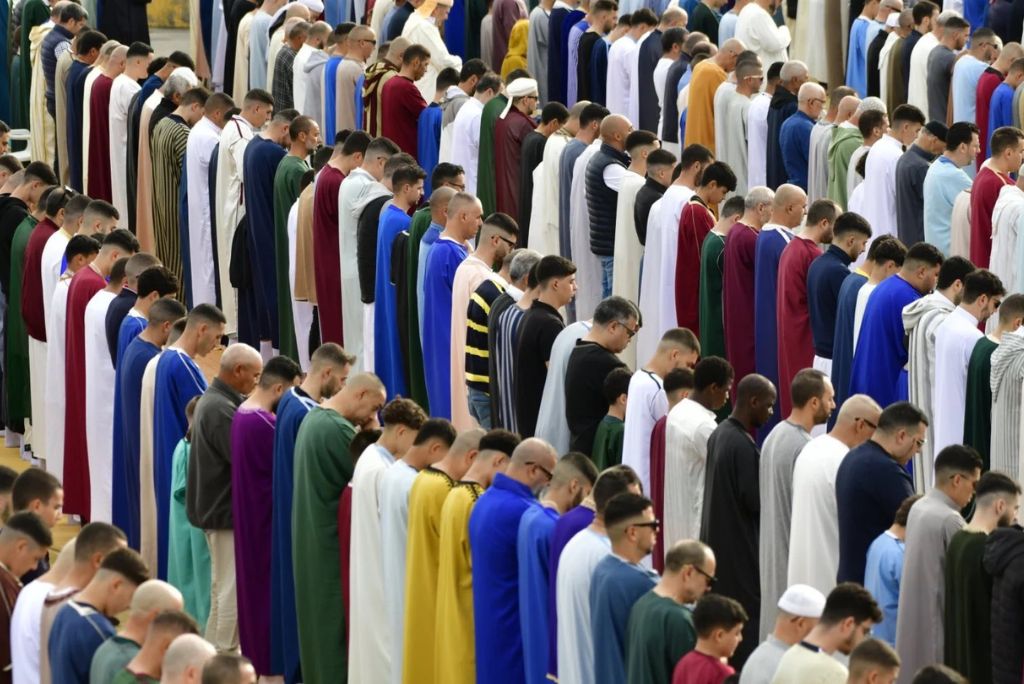The presence of the Sufi community settled in the town of Órgiva, in the heart of La Alpujarra, once again sparks debate about the cultural and religious identity of Spain.
The leaders of this movement do not hesitate to state that “Western civilization does not exist, it is nihilism,” a message that increasingly resonates in a country going through deep social, political, and cultural tensions.
Constant and silent growth
The Sufi community of Órgiva, considered one of the most important in Europe, today has around 150 families, most of them Spanish converts who have abandoned the Christian faith of their parents and grandparents to embrace Islam in its mystical form.
The arrival of new followers has not stopped in the past three decades, which has consolidated this enclave as a religious hub of notable influence.
The settlement, described as a spiritual center isolated and difficult to access, has gained notoriety not only for its religious practices, based on Sufism and the discourse of “unconditional love,” but also for the growing recruitment of nationals seeking “alternatives” to the Christian tradition and the cultural order of Western roots.
Pink Islam, courtesy of Antonio Lucas and El Mundo. I can’t imagine a sponsored report like that about a Christian community. __ With the Muslim mystics of the Granada mountains: «Western civilization does not exist, it is nihilism»
Context of insecurity and tensions
This growth takes place in a climate marked by public concern after the recent events in Torre Pacheco and Jumilla, where immigration and social conflicts linked to Muslim communities have put authorities on alert.
Although Sufism presents itself as peaceful, the radical nature of its discourse —such as denying the existence of Western civilization— reflects a direct challenge to the tradition and cultural legacy that has sustained Spain for centuries.
Official data show that more than 2.3 million Muslims already reside in Spain, of which more than 800,000 hold Spanish nationality. Andalusia has one of the highest figures, with more than 300,000 faithful, according to the Andalusian Observatory. This scenario confirms that the demographic and religious reality of the country is changing at great speed.
A clash of civilizations in the heart of Spain
It is striking that, while Europe faces the challenge of preserving its identity against migratory pressure and the loss of cultural references, in an Andalusian town a community is consolidating that relativizes and delegitimizes the foundations of Western civilization.
The message they spread —presenting the West as an empty void without values— contrasts with the principles of Christian tradition, family, respect for authority, and defense of the nation that have shaped Spain’s social fabric.
Far from being a local anecdote, what is happening in Órgiva is part of a broader process: the questioning of the history, symbols, and traditions that have made Spain a cohesive country.
The expansion of communities such as Órgiva’s reflects a direct consequence of the cultural relativism policy that the left has promoted for decades.
Under the guise of unlimited tolerance, spaces have been opened to movements that not only do not share the values of Western civilization but openly deny them.
Today, when pluralism and multiculturalism are discussed, what is at stake is not only coexistence but the survival of Spanish identity. The progressive abandonment of our Christian roots, institutional authority, and family order opens the door to a void that others fill with ideologies or religions alien to our history.
The case of Órgiva should serve as a warning: without firmness in the defense of our traditions, Spain runs the risk of fading away on its own soil.
READ MORE:
About The Author
Post Views: 0
👁️ 0 vistas
Read the full article here



